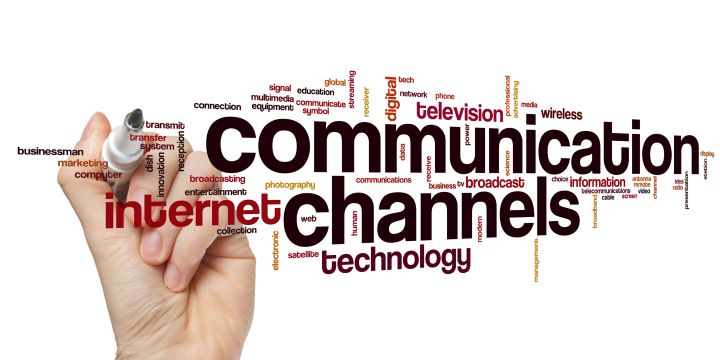Key Takeaways
- Understanding area codes’ historical and modern significance in business and personal communication.
- Insights into how area codes influence local presence and business branding.
- Exploration of the role of area codes in an increasingly digitized and globalized world.
Table of Contents
- Introduction: Understanding The Significance of Area Codes
- The Historical Evolution of Area Codes
- Why Area Codes Still Matter
- How Businesses Utilize Area Codes Today
- The Psychology Behind Area Codes
- The Future of Area Codes
- How to Choose the Right Area Code for Your Needs
- Area Codes in the Era of Globalization
- Mitigating Challenges in the Digital Age
- Conclusion: Embracing Area Codes as a Cultural Legacy
Introduction: Understanding The Significance of Area Codes
Area codes serve as the gatekeepers of our telecommunications, demarcating geographic regions and facilitating millions of connections daily. They emerged from a necessity to manage a growing network of telephones across North America, organized under the North American Numbering Plan (NANP). Initially functional, area codes have come to symbolize so much more than a series of digits dialed before a phone number.
The Historical Evolution of Area Codes
With the rise of mobile technology, the importance of a local area code has been revisited. What was once a simple technical need has become a mark of identity and heritage, so much so that individuals and businesses now actively buy 212 number to gain that association. Area codes were first implemented to make long-distance calls more practical and operator-free, thus streamlining communication across continents. To do this, they divided each continent into numbered regions and simplified communication processes. Since then, area codes have paralleled the transformation of telephone usage. From party lines and operators to mobile phones and direct dialing capabilities, area codes have always provided a reliable backbone of telecommunications infrastructure. As cities expanded and populations grew, new area codes emerged and began subdividing regions into subdivides while overlaying multiple codes in dense locations – thus emphasizing the limited numerical possibilities and necessitating sustainable numbering strategies.
Why Area Codes Still Matter
One might think that in a digitized world, the importance of a localized string of numbers would fade, yet the opposite is true. Area codes are deeply woven into the framework of our communities—not merely remnants of bygone bureaucracy but indicators of locale and identity. Businesses leverage area codes to emphasize their community presence, cultivating a local image that resonates with regional customers. Moreover, area codes play a critical role in public safety; they are instrumental in routing emergency calls to the appropriate services and ensuring a swift response. The enduring value of area codes underscores their pivotal role in personal and professional realms, acting as a bridge between the technological and the territorial.
How Businesses Utilize Area Codes Today
For businesses, an area code is a strategic asset. It’s a signal to customers of a company’s location and, by extension, its relevance to their lives. Consider the impact a recognizable area code can have on the perceived accessibility of a business. A local number can engender trust and a sense of community partnership; it suggests local knowledge and a commitment to serving the people within that area. This perception is invaluable for local businesses and can be equally strategic for national firms looking to establish a local footprint. Such an association can facilitate stronger customer connections while bolstering marketing efforts by understanding regional demographics. A local area code becomes part of a company’s identity—a subtle acknowledgment of where it’s from and who it serves.
The Psychology Behind Area Codes
The numbers comprising an area code are more than a compulsory dialing sequence; they can evoke strong feelings of identity, pride, and nostalgia. In many places, local area codes have become emblems of the community, seen on bumper stickers and T-shirts and touted by local businesses as a badge of pride. They serve as in-group signifiers that bind people to their city or region. References to area codes in popular culture, such as in music or film, imbue them with an aura of coolness or prestige. They have become identifiers as powerful as zip codes or city names, shaping perception and facilitating community connections.
The Future of Area Codes
Yet, as the telecommunications landscape shifts with the continuous influx of new technologies, what becomes of this traditional signpost of regions? VoIP and mobile technology have begun to decouple phone numbers from geographical locations, raising questions about the future relevance of area codes. The threat of exhaust, where all possible number combinations within an area code are allocated, invites innovative telecommunication approaches, leading to an entirely new understanding of what an area code can represent. The discussion surrounding the future of area codes is evolving as we explore the intersections between legacy systems and the expanding digital horizon.
How to Choose the Right Area Code for Your Needs
Deciding on the correct area code is a blend of personal preference and strategic decision-making. On a personal level, one might opt for an area code that keeps them linked to their hometown or one that family and friends easily remember. Businesses, conversely, must think critically about which area code will best position them within their desired market. They weigh factors such as the ease of customer dialing, the potential for cultivating a local image, and the implications for search engine rankings. In balancing these considerations, the choice of an area code transforms from an essential operational decision to a deliberate branding move that can subtly influence a business’s trajectory.
Area Codes in the Era of Globalization
As cultures and economies become increasingly interconnected, the significance of area codes transcends their geographical boundaries. The world is more accessible than ever before, and as businesses aim to stretch their reach beyond their shores, area codes can anchor them in their origin story. However, for international communication, the relevance of a local area code might take a backseat to universal accessibility via technologies that bypass traditional telephony. Still, in the balance between global connectivity and local identity, area codes can act as a touchstone, reflecting a business’s journey from its roots to its present international standing.
Mitigating Challenges in the Digital Age
The challenges presented by the digital age call for adaptable solutions. Area codes were not immune to the pressures of technological progress, but we’ve managed to navigate these waters through innovation. Technologies like number pooling and adding additional area codes create a more robust telecommunication infrastructure. This adaptation is ongoing, akin to the ever-changing digital landscape that prioritizes connectivity and convenience over the rigidity of regional numbering. To maintain their relevance, area codes must remain flexible, meeting the needs of an increasingly mobile and diverse population, all while holding onto the cultural significance that gives them enduring value.
Conclusion: Embracing Area Codes as a Cultural Legacy
Area codes are practical tools and woven threads in the fabric of regional narratives. They carry with them the echoes of early telecommunication breakthroughs and the evolution of societal connectivity. Acknowledging their adaptability and resilience in the face of change is recognizing a legacy that mirrors our cultural adaptability and resilience. Area codes connect us through wires, signals, shared stories, and collective experiences. As we reflect on the transformative power of communication, area codes remind us that our desire to connect is as fundamental as the numbers we dial.





